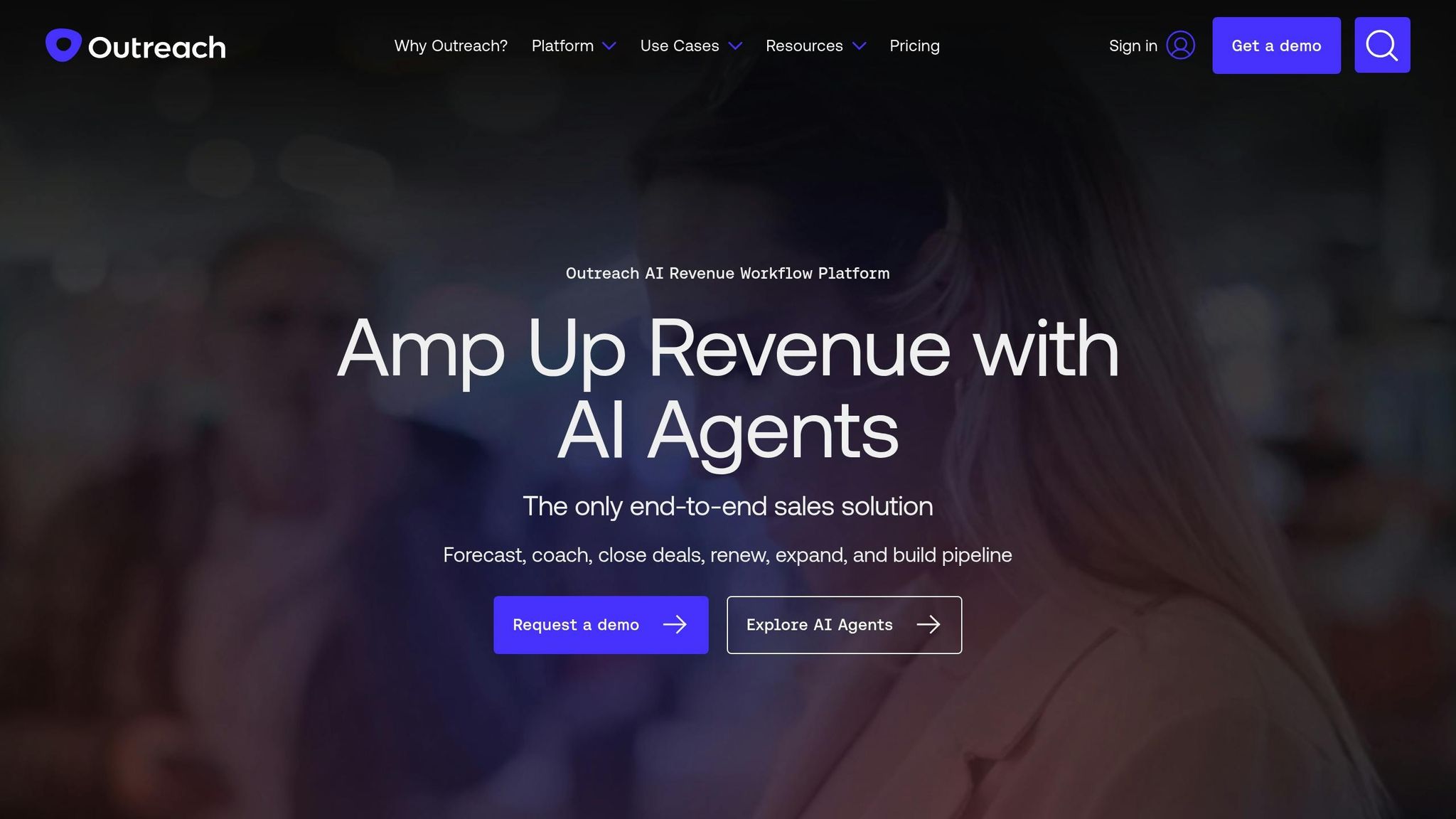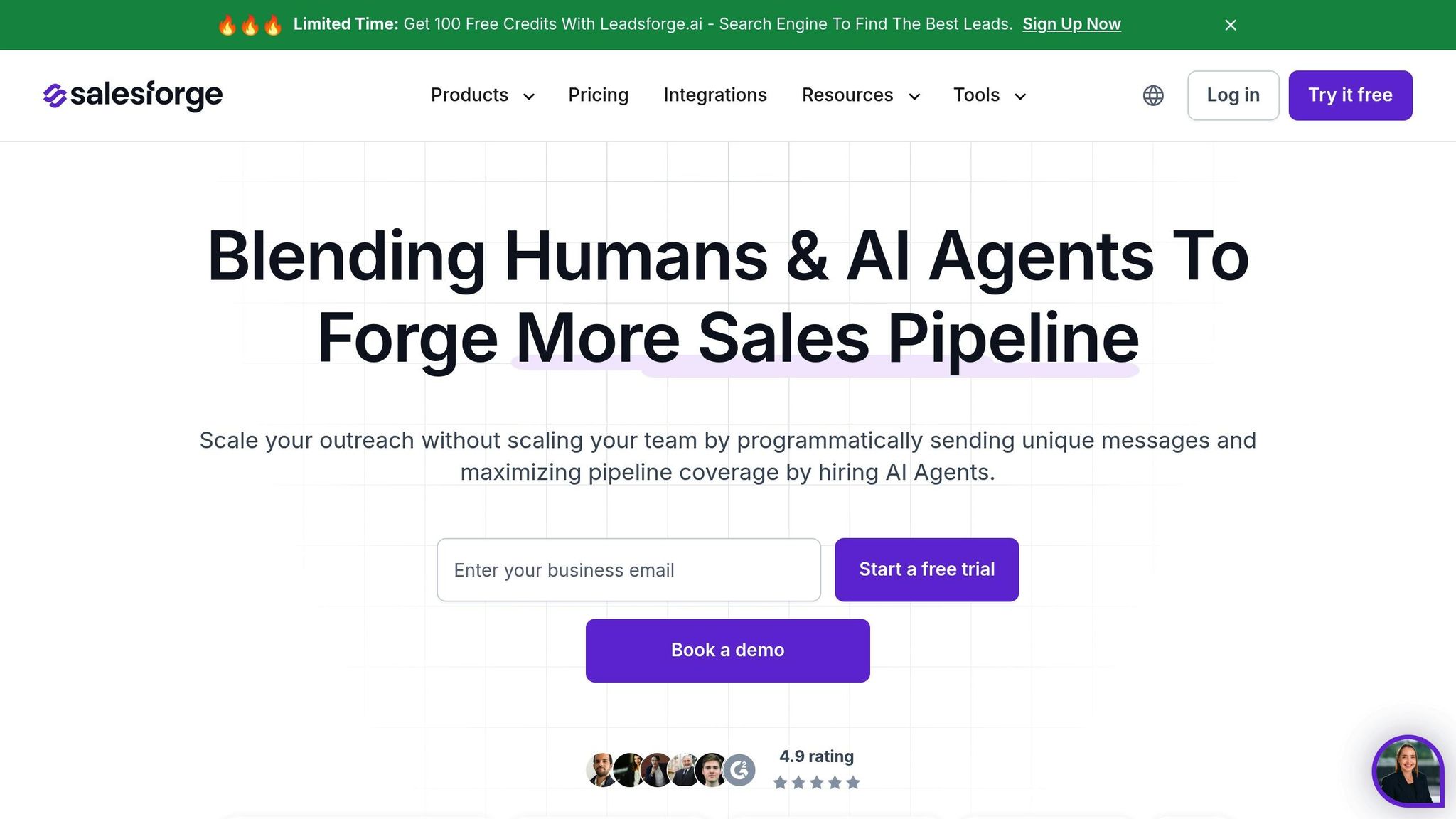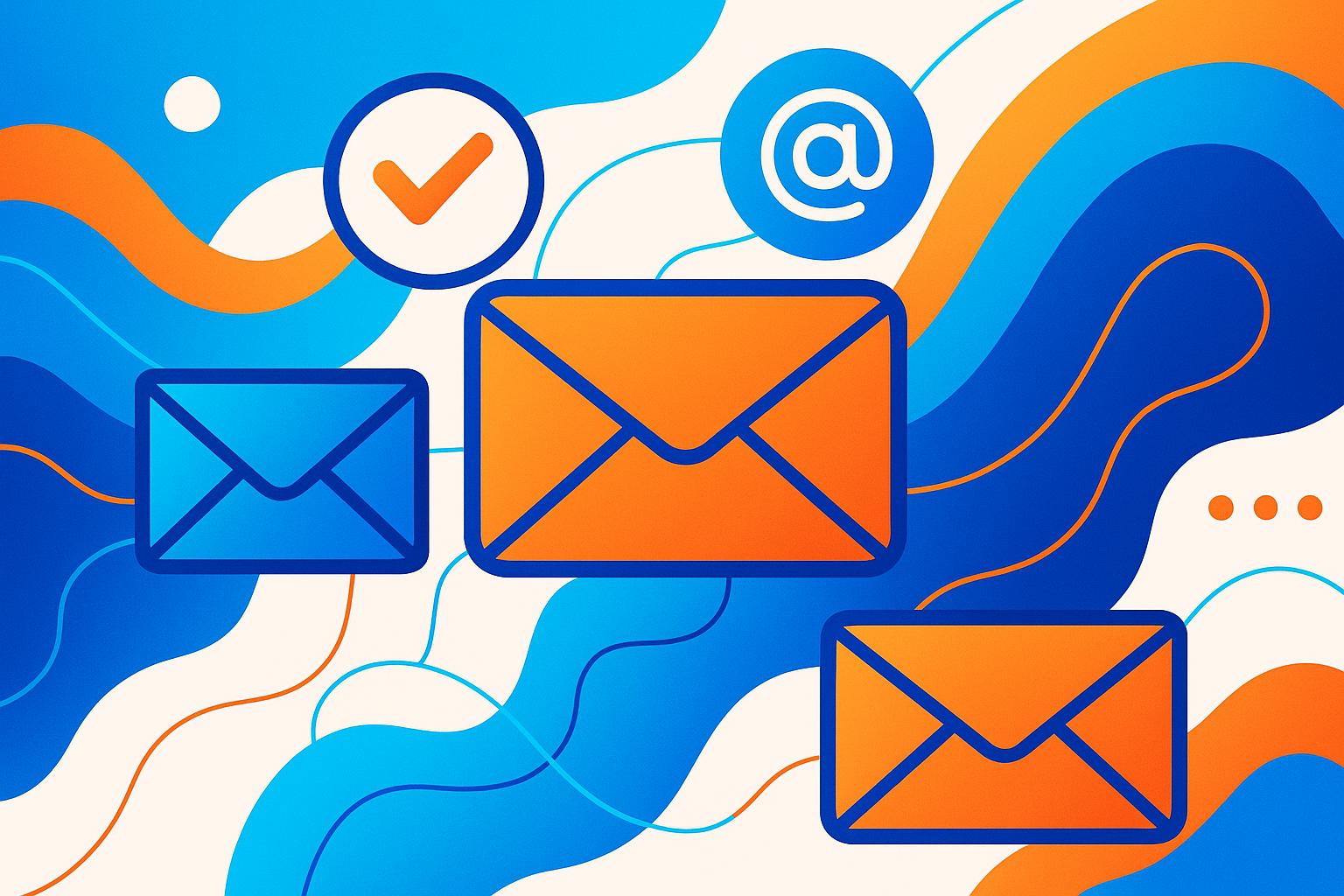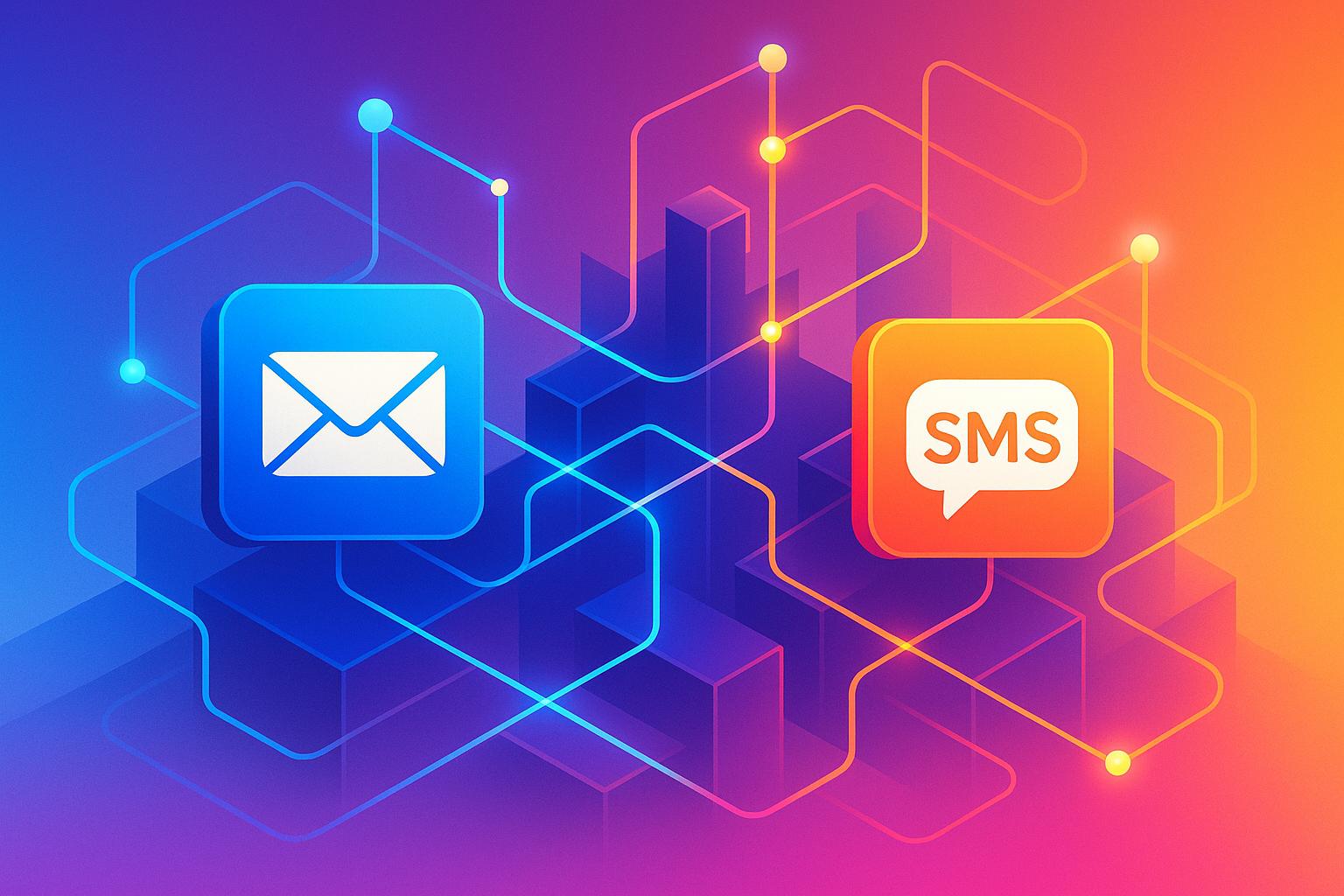Best Practices for Privacy in Cold Email Outreach
When it comes to cold email outreach, privacy is non-negotiable. Ignoring regulations like CAN-SPAM, GDPR, or CASL can lead to hefty fines - up to $46,517 per email in the U.S., €20 million in the EU, and CAD $10 million in Canada. Beyond legal risks, poor practices harm your email deliverability and reputation, making it harder to reach recipients.
Here’s what you need to know:
- Understand the Rules: CAN-SPAM allows opt-out emails, while GDPR and CASL require explicit opt-in consent.
- Include Required Elements: Use honest subject lines, sender identification, a physical address, and a clear unsubscribe option.
- Avoid Bad Practices: Don’t use scraped or purchased email lists; they lead to spam complaints and legal trouble.
- Keep Consent Records: Document how and when you obtained consent, and ensure it’s easy for recipients to opt out.
- Leverage Technology: Tools like Salesforge help automate compliance, validate email lists, and track consent.
Legal Requirements for Cold Email Outreach

Understanding the legal landscape for cold email outreach means paying attention to three major regulatory frameworks: CAN-SPAM, GDPR, and CASL. Each of these sets unique rules based on geography, defining how senders must handle recipient rights and responsibilities. These laws underline the importance of privacy and trust, tying back to the broader principles of responsible email marketing.
Key Regulations: CAN-SPAM, GDPR, and CASL
The CAN-SPAM Act applies to commercial emails sent to recipients in the United States, regardless of the sender's location. It operates on an opt-out model, meaning prior consent isn’t mandatory, but recipients must have a clear and easy way to unsubscribe. Failing to comply can result in fines of up to $46,517 per email.
On the other hand, the General Data Protection Regulation (GDPR) governs emails sent to residents of the EU and EEA. GDPR requires senders to obtain explicit consent (opt-in) before sending marketing emails. This law empowers recipients to control their inboxes, with potential fines reaching €20 million or 4% of global annual revenue.
Canada’s Anti-Spam Legislation (CASL) also demands express consent (opt-in) before sending any commercial electronic messages to Canadian recipients. CASL violations can lead to fines as high as CAD $10 million.
The key difference among these regulations lies in how they handle consent. While CAN-SPAM allows implied consent under certain conditions, both GDPR and CASL require clear, affirmative consent from recipients.
Here’s a quick comparison of the main requirements and penalties for these frameworks:
| Requirement | CAN-SPAM (US) | GDPR (EU/EEA) | CASL (Canada) |
|---|---|---|---|
| Consent Type Required | Implied consent allowed; opt-out based | Explicit consent mandatory (opt-in) | Express consent mandatory (opt-in) |
| Pre-checked Boxes Allowed | Yes | No | No |
| Unsubscribe Mechanism | Must be included in every email | Must be included, as easy as subscribing | Must be included in every message |
| Physical Address Requirement | Yes | No specific requirement | Yes |
| Penalties for Violations | Up to $46,517 per email | Up to €20M or 4% of global annual revenue | Up to CAD $10M for organizations |
Required Email Content Elements
Each of these regulations outlines specific content elements that must be included in every email to ensure compliance.
Sender identification and physical address are non-negotiable. Under CAN-SPAM, emails must include accurate header information in the "From", "To", and "Reply-To" fields, along with a valid physical postal address. Similarly, CASL requires clear identification of the sender, including name, business name, contact details, and a valid physical address. GDPR focuses on transparency, requiring senders to explain how recipient data will be used.
Honest subject lines are another critical requirement, particularly under CAN-SPAM, which explicitly prohibits misleading or deceptive subject lines. The subject must accurately reflect the email's content to avoid confusion or misrepresentation.
Unsubscribe options are mandatory across all jurisdictions. CAN-SPAM and CASL require a clear and functional unsubscribe mechanism in every email. GDPR goes a step further, mandating that withdrawing consent should be as simple as providing it in the first place. Opt-out requests must also be processed promptly.
For GDPR compliance, you’ll also need to clearly outline how data is processed and retain detailed records of consent.
If your campaign targets recipients across multiple jurisdictions, you’ll need to meet the strictest requirements from each applicable regulation to stay compliant. This ensures your outreach respects the highest standards of privacy and recipient rights.
Data Management and Consent Best Practices
Privacy is the backbone of successful outreach. By adhering to sound data management and consent practices, you can ensure compliance with regulations while also protecting your sending reputation and strengthening relationships with prospects.
Keeping Accurate Consent Records
Keeping detailed records of how you collect and document consent isn't just a best practice - it's a legal necessity.
"In case of an audit or complaint, having a record of how you obtained a recipient's data and their consent (if applicable) is critical."
Make sure to log the source, date, method of consent, and communication history for every contact. Using a Customer Relationship Management (CRM) tool can simplify this process by centralizing data sources, consent statuses, and email interactions.
Don't stop there - regularly review and update your data management processes. This includes verifying the accuracy of your records, enforcing strict access controls, and establishing clear steps for handling data subject requests. Always verify the identity of the requester and document the entire process to ensure compliance.
Integrating a consent management platform like Usercentrics can also help you improve your compliance strategy by automating the tracking and storage of user consents across multiple touchpoints, while building trust through clear communication and robust data handling practices.
Next, focus on building your email list ethically to avoid compliance issues.
Avoiding Scraped or Purchased Email Lists
Scraped or purchased email lists might seem like a shortcut, but they come with significant risks. These lists can lead to legal trouble, harm your reputation, and result in high bounce rates. Both GDPR and CAN-SPAM impose hefty fines for violations. The same data brokers who sell these scraped email lists to marketers also sell personal information to cybercriminals for fraudulent purposes. Identity theft protection from Aura helps monitor if your personal data has been compromised or is being used fraudulently by cybercriminals who purchase these datasets.
"In today's privacy-focused environment, ethical, consent-based marketing achieves superior results without legal complications", says Chase Carpenter, Partner.
Purchased lists are often riddled with outdated or fake email addresses, contributing to poor deliverability and potential blacklisting. Worse, recipients who never opted in are more likely to mark your emails as spam. Many email marketing platforms also prohibit the use of such lists, and violations can lead to account suspension or termination.
Instead, focus on growing your email list organically. Use strategies like website sign-ups, lead magnets, networking events, and referral programs. While this approach takes more time, it results in better engagement and long-term success.
Using Double Opt-In for GDPR and CASL
Double opt-in is a powerful way to confirm email validity and ensure clear, documented consent - especially in compliance with GDPR and CASL.
"Whether it's through a double opt-in process or clean consent forms, make sure subscribers actively agree to hear from you", advises Mark Voronov, Co-Founder and CEO of SocialPlug.
Here’s how it works: After someone submits their information, they receive a confirmation email. This step verifies the email address and secures explicit consent. Under GDPR, this method satisfies the requirement for clear, active consent, while for CASL, it provides solid evidence of express consent for Canadian recipients.
Double opt-in also improves the overall quality of your email list. It weeds out fake or mistyped addresses and ensures you're reaching people who genuinely want to hear from you. Plus, it enhances transparency by clearly outlining the types of emails subscribers can expect and how often they’ll receive them - helping to manage expectations and reduce spam complaints.
Email marketing expert Zoe Aughinbaugh sums it up perfectly:
"Consent is not a hurdle; it's an opportunity. It allows us to engage with an audience that's genuinely interested in what we have to offer."
Using Technology for Privacy and Compliance
AI-powered platforms simplify the process of tracking consent and ensuring compliance, which can significantly reduce the risks of non-compliance. Violations of regulations like CAN-SPAM and GDPR can lead to hefty fines. By utilizing these technologies, businesses can not only minimize risks but also make their compliance efforts more efficient.
Salesforge Features for Privacy-First Outreach

Salesforge has built privacy-first principles into its platform, emphasizing the importance of data protection:
"Privacy and security are of utmost importance to Salesforge... and we strive to ensure that our technical and organizational measures in place respect your data protection rights."
One standout feature is its email validation tool, which cleans up email lists by identifying invalid addresses before messages are sent. This reduces bounce rates, safeguards your sender reputation, and helps avoid spam-related issues. Validated email addresses also ensure smoother compliance with anti-spam laws.
The platform’s AI personalization tools help create emails that are targeted and relevant, reducing the likelihood of being flagged as spam. In fact, research shows that over 60% of marketers rely on AI-driven insights to optimize email content and timing. This level of personalization is critical, especially as 84% of consumers express concerns about data privacy and want greater control over their information, according to a Cisco survey.
Salesforge also automates consent tracking and keeps detailed records of user permissions. It collects only essential personal data - like email addresses, names, and locations - and ensures users can easily access, correct, or delete their information as needed. Every marketing email includes a clear unsubscribe link, making it simple for recipients to opt out of communications.
To further strengthen security, Salesforge hosts its servers exclusively in the European Union, ensuring compliance with GDPR standards. The platform employs industry-standard security protocols and collaborates with third parties that also meet compliance requirements.
Privacy Features Across Different Platforms
When comparing email automation platforms, privacy and compliance features are key considerations. Below is a comparison of how leading platforms stack up, with Salesforge leading the way:
| Feature | Salesforge | Mailchimp | HubSpot | Outreach |
|---|---|---|---|---|
| Automated Consent Tracking | ✓ Built-in | ✓ Available | ✓ Available | ✓ Available |
| Email Validation | ✓ Included | ✓ Available | ✓ Available | ✓ Available |
| One-Click Unsubscribe | ✓ Standard | ✓ Standard | ✓ Standard | ✓ Standard |
| GDPR Compliance Tools | ✓ EU servers | ✓ Available | ✓ Available | ✓ Available |
| Data Retention Policies | ✓ Configurable | ✓ Available | ✓ Available | ✓ Available |
| Audit Trail Logging | ✓ Comprehensive | ✓ Basic | ✓ Advanced | ✓ Advanced |
| AI Personalization | ✓ Advanced | ✓ Limited | ✓ Available | ✓ Available |
| Multi-jurisdiction Support | ✓ CAN-SPAM, GDPR, CASL | ✓ CAN-SPAM, GDPR | ✓ CAN-SPAM, GDPR | ✓ CAN-SPAM, GDPR |
The most effective platforms go beyond basic compliance. Look for features such as automated compliance alerts, predefined templates for data subject requests, and detailed audit trails to document all data handling activities.
Advanced tools can reduce regulatory risks by up to 75% while increasing productivity by automating time-intensive tasks. These capabilities are essential for keeping spam complaint rates below 0.3% and ensuring unsubscribe requests are processed within the required two-day window.
Additionally, platforms that implement security measures like DKIM, SPF, and DMARC help authenticate emails and prevent spoofing. These technical safeguards not only improve email deliverability but also show a commitment to ethical email practices.
Choose a platform that prioritizes privacy from the ground up. As regulations become stricter, a robust technological foundation will help ensure your outreach campaigns remain compliant while delivering impactful results.
Security and Deliverability Best Practices
When it comes to cold emailing, safeguarding your reputation and ensuring your emails land in inboxes - not spam folders - are key. A secure approach combines technical know-how, ongoing vigilance, and thoughtful personalization. Together, these elements create outreach campaigns that prioritize privacy and deliver measurable results.
Technical Setup for Secure Sending
Setting up your email infrastructure correctly is the first step to secure and effective email delivery. Implement SPF, DKIM, and DMARC protocols to prevent spoofing and protect your brand from phishing attacks while improving deliverability rates.
- SPF (Sender Policy Framework): This protocol specifies which mail servers are authorized to send emails on behalf of your domain. Without it, major providers like Gmail might flag your emails as spam.
- DKIM (DomainKeys Identified Mail): By attaching a digital signature to each email, DKIM ensures that messages remain unaltered during transit. This builds trust with receiving servers and reduces the risk of tampering.
- DMARC (Domain-based Message Authentication, Reporting, and Conformance): DMARC works alongside SPF and DKIM to guide receiving servers on handling unauthenticated emails. It also provides feedback on potential issues, allowing you to address them quickly.
Using a company email address - rather than a free domain like @gmail.com or @yahoo.com - boosts credibility and reduces spam flags. Additional steps like SSL encryption and domain masking add another layer of protection for sensitive data. Once your technical setup is in place, regular audits ensure these measures remain effective over time.
Regular Compliance Audits
Staying compliant isn’t a one-and-done process. Regular audits of your email workflows help identify and address potential gaps before they lead to issues.
- Consent and opt-out records: Confirm that all recipients have given explicit permission to receive your emails.
- SPF, DKIM, and DMARC checks: Ensure these protocols are properly configured across all domains, especially after updates or domain transfers.
- Data security reviews: Verify that access controls, encryption, and retention policies are up to date, ensuring only authorized personnel handle sensitive information.
- Content evaluations: Check that your emails include accurate sender details, clear subject lines, and an easy-to-find unsubscribe option.
- List hygiene: Regularly remove invalid or outdated email addresses to reduce bounce rates and maintain your sender reputation.
- Incident response plan templates: Keep ready‑to‑use playbooks for deliverability drops, consent/unsubscribe failures, and suspected data exposure, naming owners and first steps.
By staying proactive with these reviews, you can avoid compliance violations and protect your brand’s standing.
Personalized and Relevant Outreach
Technical safeguards are just one piece of the puzzle. Personalization plays a critical role in improving both deliverability and engagement. Emails that go beyond simply including a recipient’s name can boost click-through rates by up to 14%. This makes personalization a smart strategy for compliance and performance.
Tailor your emails to reflect the recipient’s role, company, or challenges. This approach ensures relevance and aligns with regulatory standards for legitimate interest. AI tools can help scale this effort by analyzing publicly available professional information, while steering clear of overly personal details that might raise privacy concerns.
Building detailed Ideal Customer Profiles (ICPs) helps you target the right audience with messages that resonate. Additionally, warming up email accounts gradually builds sender reputation and avoids spam filters. To keep your emails effective, steer clear of pushy language, excessive links, or spam-like formatting.
When combined, a solid technical foundation, regular compliance checks, and thoughtful personalization create a privacy-conscious approach to cold emailing. These practices not only protect your business from risks but also build the trust and credibility needed for long-term success.
Key Takeaways for Privacy in Cold Email Outreach
Summary of Privacy Best Practices
Approaching cold email outreach with a privacy-first mindset isn't just about ticking legal boxes - it’s about fostering trust and building sustainable relationships. To start, it's crucial to understand the specific regulations that apply to your audience. Whether you're working under the CAN-SPAM Act in the U.S., GDPR in the EU, or CASL in Canada, each framework outlines how to handle data, structure messages, and process opt-outs.
Effective data management is at the core of compliance. Keeping detailed consent records, steering clear of scraped or purchased email lists, and relying on verified data sources are non-negotiable steps. In fact, businesses that regularly clean their email lists report a 15% improvement in deliverability rates. Simply put, investing in high-quality data isn't just about complying with the law - it’s about improving your overall campaign performance.
Technology can simplify the complexities of staying compliant. Tools like Salesforge offer features such as email validation, automated opt-out management, and AI-driven personalization - all while adhering to privacy regulations. These platforms help streamline outreach and maintain efficiency across different regulatory environments. Combined with a strong technical setup and regular audits, as discussed earlier, these tools ensure your campaigns stay on the right side of the law.
Long-Term Benefits of Privacy-First Outreach
Respecting privacy builds trust. When recipients see clear opt-out options and know their preferences are honored, they’re more likely to engage. A Litmus survey found that 53% of users mark emails as spam simply because they can’t easily find an unsubscribe link. Transparency here isn’t just courteous - it’s key to maintaining credibility.
Beyond trust, privacy-first practices can significantly improve email deliverability. Email providers like Gmail and Outlook reward senders who maintain clean email lists, follow proper authentication protocols, and generate positive engagement. This means your messages are more likely to land in the inbox rather than the spam folder.
Ethical data practices also enhance personalization. Cold emails crafted with compliant, high-quality data see a 22% higher open rate, and subject lines become up to 26% more effective. These tailored approaches don’t just boost immediate response rates - they also help establish long-term trust with your audience.
The financial rewards of privacy-conscious outreach are clear. Take Spotify, for example. In March 2023, they reduced their email bounce rate from 12.3% to 2.1% within 60 days by implementing a new Email Verification API. This adjustment led to a 34% increase in deliverability and generated an additional $2.3 million in revenue.
Finally, embedding privacy into your email strategy helps future-proof your business. Regulations continue to evolve, and according to HubSpot's 2024 Email Marketing Report, 68% of marketers find compliance increasingly challenging. Companies that prioritize privacy now will find it easier to adapt to these changes down the road.
In short, privacy-first cold emailing isn’t a limitation - it’s a strategic advantage. By balancing respect for privacy, technical precision, and personalized outreach, you can build trust, improve performance, and drive sustainable growth.
FAQs
What’s the difference between CAN-SPAM, GDPR, and CASL for consent in cold email outreach?
The CAN-SPAM Act allows cold emails without prior consent but insists on providing a clear opt-out mechanism and accurate sender details.
GDPR is more stringent, demanding either explicit consent or a valid business interest to justify contacting someone. It also ensures that recipients can withdraw their consent effortlessly.
CASL takes it a step further by typically requiring explicit opt-in consent before sending emails. Exceptions are rare, and sending emails without this consent is not allowed.
How can I make sure my email lists are compliant and avoid legal risks when using purchased or scraped contacts?
To ensure compliance and minimize legal risks, it's crucial to build your email lists the right way. Avoid relying on purchased or scraped contacts. Instead, focus on getting explicit consent from recipients. Make sure any data you use comes from trusted sources that can provide clear evidence of opt-in.
Stay aligned with major regulations like GDPR, CCPA, and CAN-SPAM by keeping records of consent and offering recipients an easy way to opt out of your emails.
Using ethical list-building practices not only helps you avoid legal trouble but also boosts the overall success of your cold email campaigns.
How can tools like Salesforge help ensure compliance and privacy in cold email campaigns?
Tools like Salesforge make managing compliance and privacy in cold email campaigns much easier by automating key tasks. They handle email authentication protocols such as SPF, DKIM, and DMARC, which improve email deliverability and lower the chances of your messages landing in spam folders.
On top of that, AI-powered personalization allows you to craft tailored messages for recipients without exposing or mishandling sensitive data. Features like automated follow-ups and organized list management ensure ethical outreach, helping you avoid over-emailing or breaking regulations. These tools take care of the technical and compliance-heavy work, so you can focus on creating meaningful connections with your audience.




